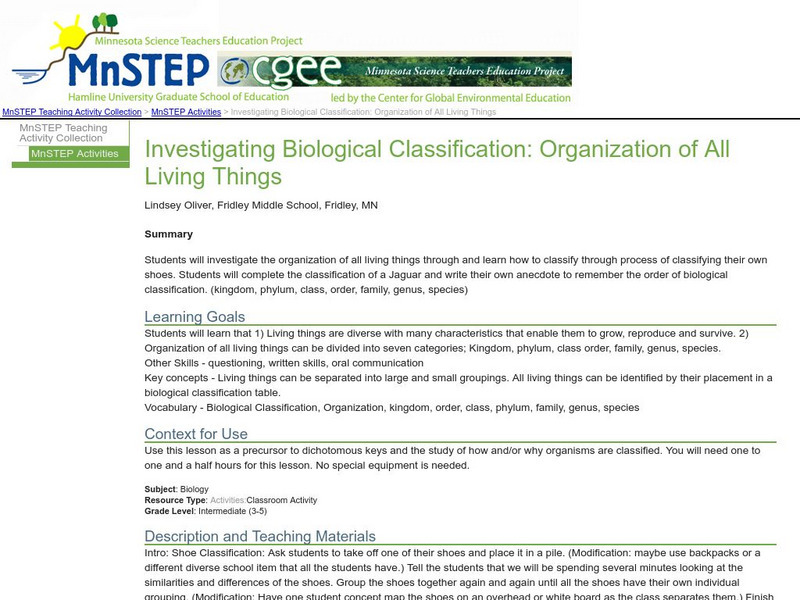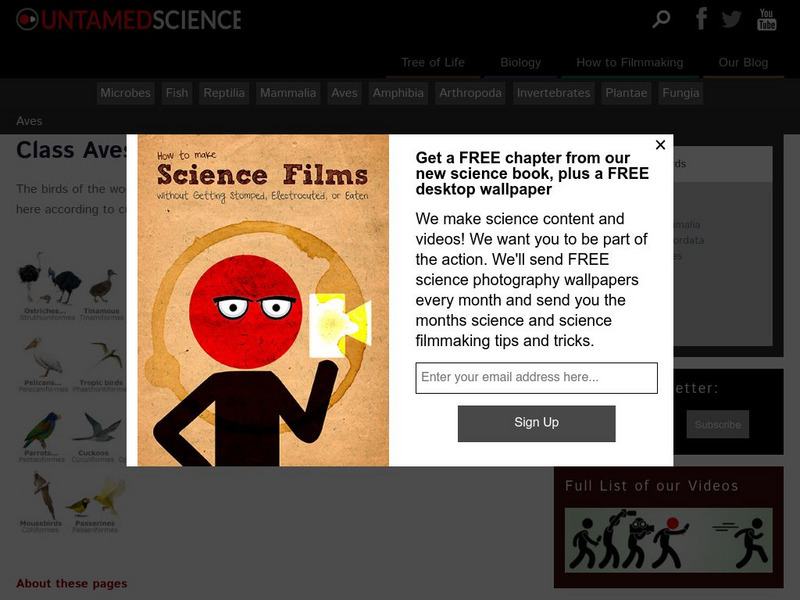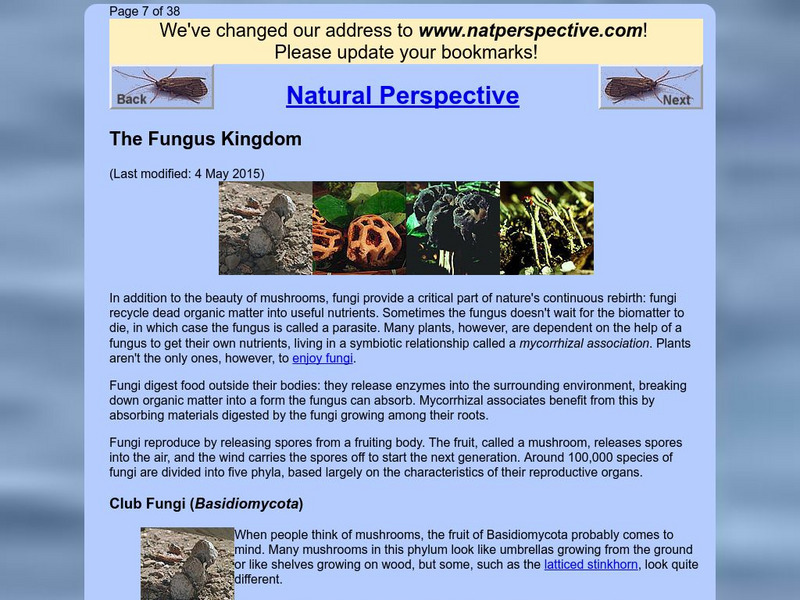Hi, what do you want to do?
Curated OER
PRIMATE CLASSIFICATION: Evolution, Cladograms,
Students transfer examples (names) of primates from their location in an outline hierarchy of primate groups into a set of nested boxes reflecting that same hierarchy. A cladogram can then be drawn illustrating how these groups are...
Curated OER
Learning in Cockroaches
Young scholars make scientific observations. In this stimulus response lesson, students make observations and collect data to determine if cockroaches can learn. A secondary purpose of this lesson is to provide young scholars with the...
Curated OER
Amphibians
In this amphibian learning exercise, students read about the frog life cycle to complete the Venn diagram. They also answer 16 fill in the blank questions about frogs.
Curated OER
Animal Classification
Students are introduced to the concept of classification as it relates to objects, information, and characteristics. In this classification lesson, students research a variety of animals. Students study the Linnaeus's system of...
Curated OER
Zoology Word Search Puzzle
In this science learning exercise, students look for the words that are related to the concept of zoology that is reviewed in the sheet. They also acquire new vocabulary.
Curated OER
Diversity of Life
Students study Arthropods and their characteristics. In this organisms lesson students explore the success of Arthropods and answer questions.
Curated OER
Biological Taxonomy
For this biology worksheet, students read about biological taxonomy. They then use the information they learned to answer the 13 questions on the worksheet. The answers are on the last page of the packet.
Curated OER
Mouthwatering Mollusks
Students investigate various forms of aquatic life. They use four senses, touch, taste, smell, and observation to explore mollusks. Students cook and taste various types mollusks, such as mussels, scallops, and squid.
Curated OER
Scientific Classification
In this scientific classification worksheet, students read about classification and the questions scientists ask in order to classify, then read about features of different classifications of animals. Worksheet is informational, no...
Curated OER
For Creative Minds: What Makes an Animal a Mammal?
Students read about categories of mammals and their features. Students then construct a marine animal, using given print outs in the lesson plan. Students then create adaptations for their mammal, using a web site reference for guidance.
Curated OER
Ocean Creature Classification
Students develop their own system for classifying a group of objects or organisms using observed similarities and differences. They investigate the process of scientific classification, and explain how marine organisms are classified by...
Curated OER
Ocean Creature Classification
Students develop a Taxonomic Key for marine invertebrates from pictures they are given after practicing together with common objects, such as shoes. They then compare their key to a provided Ocean Invertebrates Taxonomic Key.
Curated OER
Territorial Behavior in Crickets
Pupils explore the behavior of crickets during courtship. They measure the number and types of interactions between household crickets. Students discriminate between quantitative and qualitative observations. They collect data to...
Curated OER
The Brine Shrimp Project
Tenth graders design and conduct a laboratory investigation to determine how different factors may affect the hatching and development of brine shrimp eggs.
Curated OER
Classification
Second graders sort insects into groups by determining similar characteristics. They role play as Entomologists to sort insects.
Curated OER
Classification
In this biology worksheet, students identify and locate various vocabulary terms related to the classification of living things. There are 32 biology terms located in the word search.
Science Education Resource Center at Carleton College
Serc: Investigating Biological Classification: Organization of All Living Things
All living things can be identified by their placement in a biological classification table. Students will investigate the organization of all living things and learn how to classify through the process of classifying their own shoes....
Untamed Science
Untamed Science: Biodiversity: Animals: Chordates: Amphibians: Class Amphibia
Explore the biodiversity of the Class Amphibia through videos, photos and examples. [2:34]
Untamed Science
Untamed Science: Biodiversity: Animals: Chordates: Birds: Class Birds
Through video clips and pictures, explore the orders and a variety of species found in the Class Aves.
Other
Perspective.com: The Fungus Kingdom
Fungi have a variety of roles in nature, including decomposers and parasites. This website from Perspective.com includes additional information on the Fungus Kingdom, and a breakdown of related phylums and classes.
Indiana University
Indiana University Bloomington: Identifying 3 D Fossil Prints [Pdf]
In this lesson, students will identify three-dimensional (3-D) prints of common Indiana fossils to the kingdom, phylum, or class level. Students will observe and record the morphology of specimens and classify organisms based on their...
Wikimedia
Wikipedia: Binomial Nomenclature
Wikipedia, an open-source encyclopedia, offers great information on the classification system used in Biology. Covers the benefits of the system, history, and general information on the whole system together.
Sophia Learning
Sophia: Classification of Organisms: Lesson 1
This lesson will introduce taxonomy and give an example by providing the scientific classification of an organism. It is 1 of 2 in the series titled "Classification of Organisms."
Enchanted Learning
Enchanted Learning: Owls
Learn more about owls through this concise resource. This site provides information about the anatomy, pictures, the habitat and range, classification and more of owls.

























![Indiana University Bloomington: Identifying 3 D Fossil Prints [Pdf] Lesson Plan Indiana University Bloomington: Identifying 3 D Fossil Prints [Pdf] Lesson Plan](https://static.lp.lexp.cloud/images/attachment_defaults/resource/large/FPO-knovation.png)


